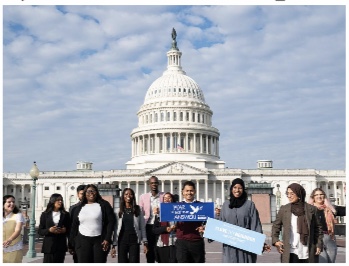Lifestyle
Building Support Systems in the Diaspora

When you first leave home, especially a home that is as full of warmth, laughter, and noisy neighbours as Nigeria, you imagine that the biggest challenge abroad will be the weather, the food, or maybe the accent. What many people do not prepare for is the loneliness that could result from the change of environment.
In the diaspora, life can be quiet in a way that is both peaceful and painfully isolating. You begin to miss the little things: impromptu visits from friends, the aroma of suya at night, or the way your neighbour knocks to borrow pepper and ends up staying for gist. Abroad, everyone seems to be moving with a sense of purpose and urgency. They rush to work, rush back, heads bowed, eyes fixed on schedules and screens. If you are not careful, you too get swallowed into that rhythm.
In order not to get caught up in the speed of things, building a support system is necessary.
Support systems do not have to be large. They can start with one friend who understands your jokes without explanation. A WhatsApp group of Nigerians in your city. A local African church where you hear songs that remind you of childhood. It might even be a co-worker who invites you to her child’s birthday party, making you feel like you belong, even if it is just a little.
It takes effort. Sometimes, you might have to initiate conversations, show up for others before they show up for you, or attend gatherings even when you feel shy or tired. However, slowly, you begin to feel the connection and one day, you find yourself cooking jollof rice for someone else’s bad day, or calling a friend because they’re the only one who gets how much you miss home.
The diaspora can feel like an in-between place, neither here nor there, but support systems give it weight. They give it meaning. In the laughter shared with friends and co-workers, or in the shared silence of knowing glances during hard days, home is rebuilt somewhere.
In the end, you get to realize that home is not always a place. Sometimes, it is just the people who give us peace and warmth.
Lifestyle
The Pitt, The Studio Dominate 2025 Emmy Awards

The Pitt, The Studio Dominate 2025 Emmy Awards
Hollywood’s biggest television stars gathered on Sunday night for the 2025 Emmy Awards, where two productions, The Pitt and The Studio, emerged as the night’s biggest winners.
The Pitt, a gripping medical drama set in a bustling emergency room, clinched the coveted Best Drama Series, while The Studio, a satirical comedy about Hollywood politics, not only won Best Comedy Series but also shattered Emmy records with a clean sweep across multiple categories.
In a defining moment of the ceremony, veteran actor Noah Wyle earned his first-ever Emmy after decades in television, winning Lead Actor in a Drama Series for his performance in The Pitt.
Wyle, visibly moved, dedicated the award to healthcare workers worldwide, describing the show’s success as “a reflection of the courage and sacrifice of those who save lives every day.”
Seth Rogen’s The Studio proved unstoppable in the comedy category, taking home 13 trophies — the highest number of wins for a comedy series in a single year, according to the Television Academy.
Rogen, who co-created and starred in the show, also walked away with Lead Actor in a Comedy Series, his first Emmy.
He called the triumph “the proudest moment” of his career.
Critics have hailed The Studio for its sharp wit and insider satire, offering audiences a humorous but piercing look into Hollywood’s inner workings.
The series’ record-breaking feat now places it among the most celebrated comedies in Emmy history.
Industry watchers say the dual success of The Pitt and The Studio signals a shift in Hollywood storytelling, with both shows reflecting real-world struggles and triumphs in institutions — healthcare and entertainment — that resonate with global audiences.
The victories came against formidable contenders including Severance and Abbott Elementary, underscoring the appetite for fresh narratives that balance cultural depth with entertainment.
As the night drew to a close, the Emmy spotlight rested squarely on The Pitt and The Studio — productions that not only entertained millions but also reinforced television’s enduring power to mirror society.
Lifestyle
Jay-Z Emerges World’s Richest Musician with $2.5bn Net Worth — Forbes

Jay-Z Emerges World’s Richest Musician with $2.5bn Net Worth — Forbes
American rap icon and business mogul, Sean Carter, better known as Jay-Z, has been declared the world’s richest musician by Forbes with an estimated net worth of $2.5 billion.
The Roc Nation founder’s fortune cuts across multiple ventures, including his luxury champagne brand, Armand de Brignac (Ace of Spades), cognac label D’Ussé, and his stakes in real estate, hospitality, technology, and startups.
He also reaped huge gains from the sale of music streaming platform Tidal and his former clothing line, Rocawear.
Jay-Z’s rise to the top further cements his reputation as not only a cultural force but also one of the most successful music entrepreneurs globally.
On the female side, American pop star Taylor Swift retained her crown as the richest female musician, with a net worth of $1.6 billion.
Forbes noted that Swift remains the first artist in history to attain billionaire status solely from music and touring earnings.
Lifestyle
Single Mothers Can’t Raise Boys Into ‘Proper Men’ – Jim Iyke

Single Mothers Can’t Raise Boys Into ‘Proper Men’ – Jim Iyke
Nollywood star, Jim Iyke, has stirred controversy with his recent remarks on parenting, insisting that single mothers cannot raise a boy into a “proper man” without the presence of a male figure.
Speaking during an interview with Okay 101.7 FM in Accra, Ghana, the actor argued that women are naturally built to nurture but lack the disciplinary balance needed to raise boys into men.
“A woman can’t raise a man. You can’t, you’re not built for it. A single mother cannot raise a man properly. You need a male influence – go get your brother that’s doing well or your father or even any man that you trust. There has to be a male presence in it [raising a boy child],” Iyke said.
He further maintained that boys require strict guidance from men in order to grow into disciplined adults.
“Because women are naturally built to nurture, to love. And then what you’re going to raise is a very weak man? He is going to be everything like the men that left you. You need somebody that would discipline him, tell him ‘No’ as often times as possible, and put him in the grind,” he added.
Iyke’s remarks have since triggered heated debates across social media, with some agreeing with his perspective while others accused him of undermining the struggles of single mothers who successfully raise responsible children without male support.
The actor, who has often been outspoken on social issues, did not back down on his position, stressing that the absence of a male role model leaves a critical gap in raising boys.
-

 News3 days ago
News3 days agoHow US Captured Venezuela’s President Maduro in Daring Overnight Raid
-

 Analysis3 days ago
Analysis3 days agoAbroad and the Mirage of Greener Pastures, by Alabidun Shuaib AbdulRahman
-

 News3 days ago
News3 days agoUS Denies War With Venezuela as Tensions Rise After Maduro’s Capture
-

 News3 days ago
News3 days ago40 Dead, 119 Injured in Swiss Ski Resort Bar Fire
-

 Analysis3 days ago
Analysis3 days agoUnderstanding Nigeria’s Tax Reforms from the Diaspora Lens, by Boniface Ihiasota
-

 Business3 days ago
Business3 days agoFG Targets One Exportable Product per LGA as Nigeria Deepens AfCFTA Push in 2026






















